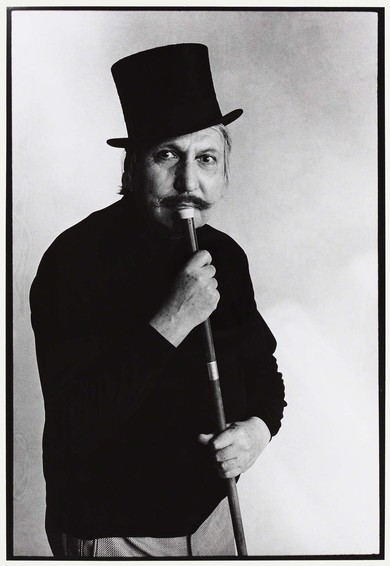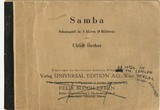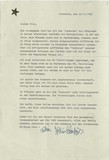Post-exile in Basel
Post-exile in Basel
After the war ended, Ulrich Becher stayed in New York until 1948 before remigrating to Europe. During the first few years following their return, the family led a “nomadic” life that was principally oriented on the places where Becher’s works were being performed. “We stayed in Vienna and Berlin, Munich and Innsbruck, Basel and Zurich, and in between at various retreats in the country, which was where Uli could work best,” recalls Martin Roda Becher in Dauergäste (Permanent Guests). 1955 saw the family settle permanently in Basel, yet Becher’s provisional status continued post-exile and obliged him to live in an apartment building until his death in 1990.
Becher’s relationship with the city of Basel was highly ambivalent. He repeatedly complained about how narrow-minded and provincial the city was compared to Berlin, Vienna or Munich. Despite this, Basel is the setting of several of his works, including Nachtigall will zum Vater fliegen (Nightingale Longs to Fly to His Father), the drama Mademoiselle Löwenzorn, and the novel Das Herz des Hais (The Heart of the Shark), which testifies to Becher’s fascination with the culture of Mardi Gras. Becher continued to thematise exile and the catastrophes of the 20th century in his work: after decades in preparation, his great exile novel Murmeljagd (The Woodchuck Hunt) was finally published in 1969.





![Typescript: Ulrich Becher, Abseits vom Rodeo [Away from the Rodeo] Typescript: Ulrich Becher, Abseits vom Rodeo [Away from the Rodeo]](/KIE/Content/EN/SpecialExhibitions/UlrichBecher-en/Images/Objects/rodeo.jpg?__blob=thumbnail&v=3)